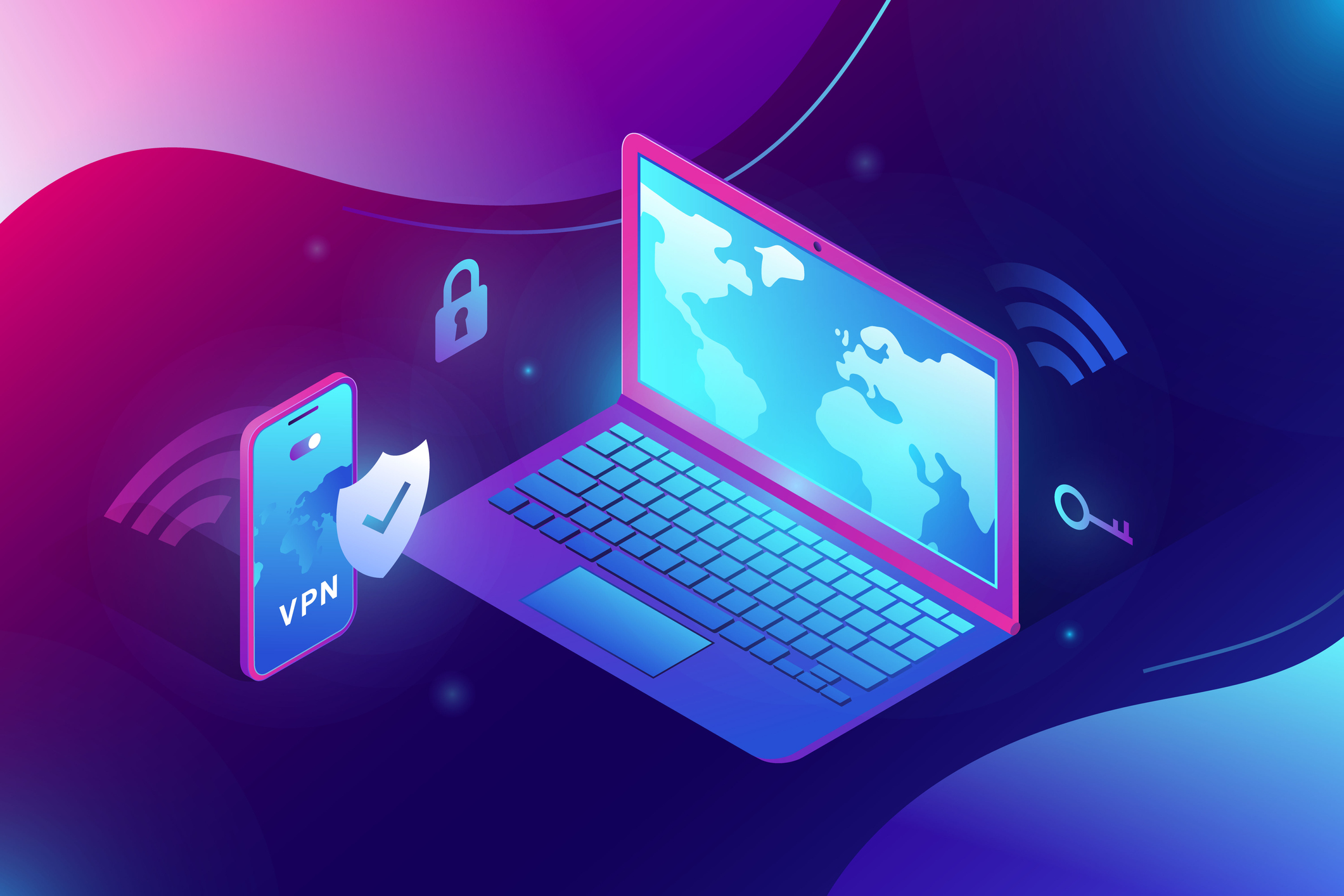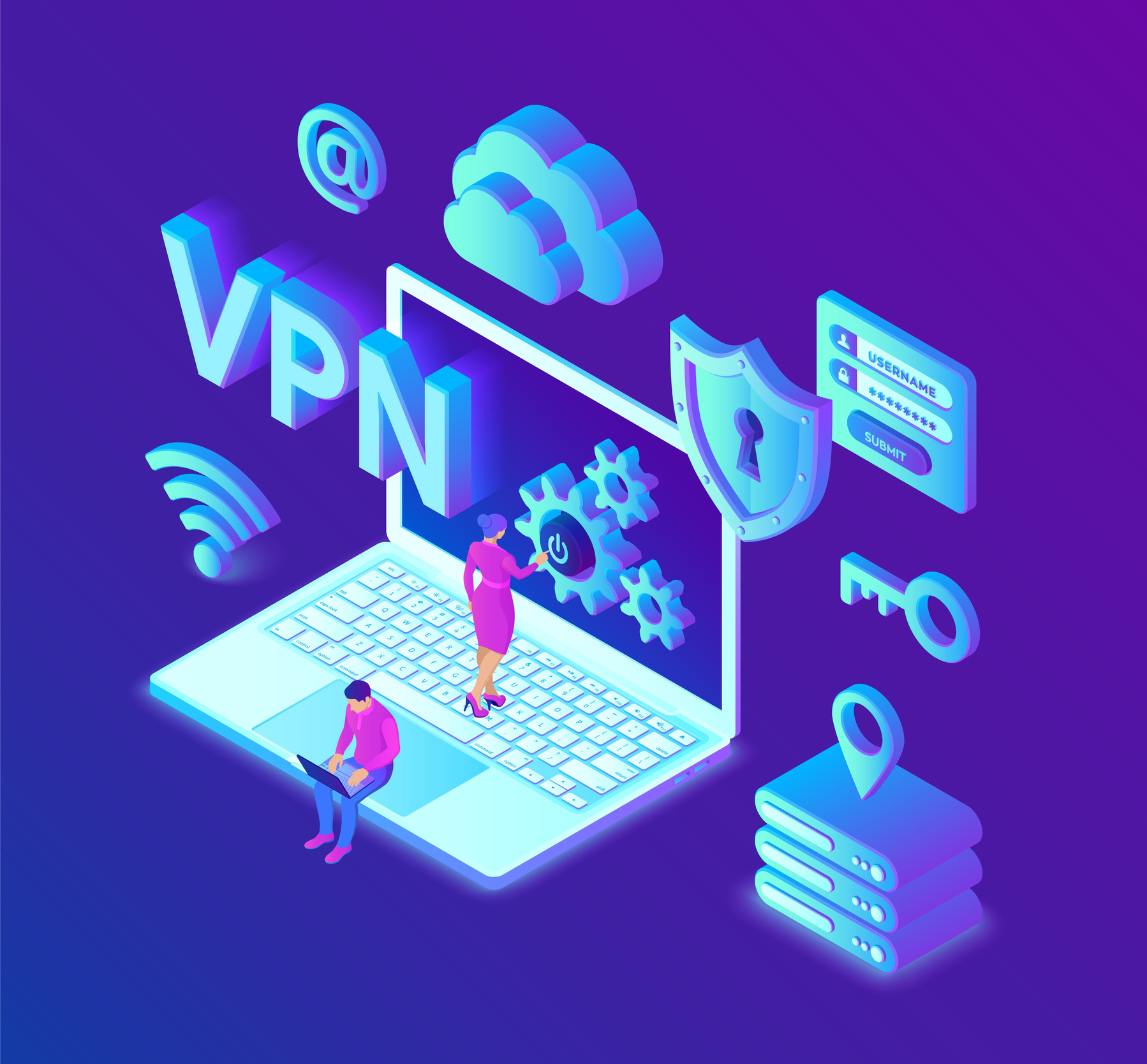VPN vs. Firewall – what's the difference?
Both tools do their part to secure your digital privacy

Data exposure and cyber threats have never been as prevalent as they are today – in fact, approximately 422 million people experienced some form of financial data breach in 2022.
With these statistics in mind, for 2023 and beyond, it's crucial that we focus on measures that can prevent threats to our data security. There are two tools that have proven to be particularly effective against malicious activities – Virtual Private Networks (VPNs) and Firewalls.
But what are they, and how do they combat unprecedented cyberattacks? We'll explore both tools in this article, how they differ, and how you can best put them to use.
What is a VPN?
A VPN is a security tool that creates a secure connection over a less secure network between your computer and the internet. The VPN does this by routing internet traffic through a remote server, encrypting it, and effectively masking the origin of the data. Consequently, it looks like the traffic is coming from the server's location – not from your device – and nobody will be able to monitor what you get up to online.
Typically, you'll come across two types of VPNs – Remote Access and Site-to-Site.
Remote Access VPNs are the sort of VPNs you're more likely to use as a consumer and connect you to a private network through that encrypted tunnel, so you can access sites via your device. Alternatively, remote workers use these VPNs to seamlessly connect to corporate networks.
On the other hand, Site-to-Site VPNs connect entire networks to each other – although each individual user won't have to install the tool. You can connect your home or office network to its data center network using a Site-to-Site VPN, which makes them ideal for businesses with teams around the globe.
Sign up to get the BEST of Tom's Guide direct to your inbox.
Get instant access to breaking news, the hottest reviews, great deals and helpful tips.
How it works
VPN encryption adds an extra layer of protection to your data
When you deploy a VPN, it encrypts your data as it passes through the secure tunnel to the server. This ensures that snoopers (including hackers, your ISP, and even the government) can't monitor your online activity. The VPN server will then decrypt and route your data to its intended destination.
A VPN also encrypts the response from the destination website before sending it back to your device, which adds another layer of protection to your data, keeping it secure.
Benefits of using a VPN
A VPN is a must-have tool for anyone looking to shore up their digital security. Here are just a few of the ways that using one can benefit you:
- Enhanced privacy: When a VPN sends your data through the encrypted tunnel, it also assigns you a new, temporary IP address based on the server location you join – this tricks the sites you visit into thinking you're physically located elsewhere and makes it hard for third parties to spy on what you're doing. Currently, 31% of global internet users rely on VPNs, and the worldwide VPN market is expected to reach 75.59 billion US dollars by 2027.
- Safe data transmission: VPNs leverage robust encryption protocols, like OpenVPN and WireGuard, to ensure secure data transmission and keep hackers at bay.
- Helps bypass censorship: With a VPN, you can dodge geo-restrictions by connecting to international servers to enjoy that region's content. These servers come in handy if you're traveling and want to access content from your home country, or if you're living somewhere with strict internet censorship.
- Secure access to public Wi-Fi: Using public Wi-Fi networks exposes your data to an increased risk of breaches – and 4 in 10 people have had their data compromised when relying on these unsecured networks. However, VPN encryption keeps your credentials and login details safe from would-be hackers and breaches.

What is a firewall?
Next-generation firewalls blend traditional capabilities with high-end features
Firewalls, in a nutshell, are network security systems that observe and regulate traffic by leveraging a set of predetermined rules. As the name suggests, it's the hard-to-crack wall between a secure internal network and undefined external networks.
Firewalls have different categories; packet-filtering firewalls, proxy, stateful inspection firewalls, and next-generation firewalls.
Packet filtering firewalls justify their namesake by scrutinizing data packets. Using this analysis, they'll either allow or block the packets using predefined rules related to the source destination IP addresses.
Proxy firewalls act as an intermediary between your device and the internet, filter traffic, and cache content to improve performance, based on your firewall rules.
State inspection firewalls, on the other hand, supervise the state of active connections. Then, they use these details to figure out whether to allow or deny specific data packets.
Naturally, the next-generation firewalls are the most advanced. They combine conventional firewall capabilities with high-end features, and can include application-level filtering, deep packet inspection, intrusion prevention systems, and more.
How it works
Firewalls employ a straightforward methodology – they analyze data packets sent to and from your device and tally them against predefined rules. If the data packets meet the criteria, the firewalls allow them to pass through. Conversely, if they don't, firewalls block the packet and prevent it from gaining access to your device.
Benefits of using a firewall
Like VPNs, firewalls have their fair share of unique benefits. Let's cover some of the most important features:
- Protection against cyber threats: Firewalls can help prevent unauthorized access to your network by blocking malicious traffic.
- Customizable security: By creating specific rules for your network, you'll be able to tailor your firewall, and security, to suit your specific needs.
- Manage network traffic: Leveraging firewalls also gives you more control over your network traffic – for example, being able to limit or prioritize specific types of traffic.
- Monitoring and logging: Firewalls can log network activity, meaning you can review and analyze it to detect potential threats of policy violations. This can further help you identify and mitigate security risks before they cause major damage.

Key differences between VPNs and firewalls
VPNs and firewalls share some similarities, and you can use both to improve your overall digital security by weeding out threats like hackers, breaches, and unsecure networks. To differentiate between them, however, all you need to do is consider these factors:
- Primary function: VPNs are designed to improve privacy and security when transmitting data. Firewalls, on the other hand, aim to protect your network from malicious traffic and unauthorized access.
- Level of protection: VPNs offer end-to-end encryption, securing data in transit, while firewalls monitor and regulate network traffic and don't offer end-to-end encryption.
- Usage: You can count on VPNs to secure online privacy or bypass geo-restrictions. Conversely, firewalls are suitable for protecting your network from cyber threats.
- Cost: VPNs usually involve monthly or annual subscriptions, whereas firewalls can be a built-in feature of your router or operating system. You can also purchase firewalls as individual hardware or software solutions with varying costs.
When to use a VPN vs. firewall
Here are a few critical factors to keep in mind when you're weighing up whether to use a VPN or a firewall:
Situations where VPNs are more appropriate:
- For maintaining privacy while browsing the internet or using public Wi-Fi networks.
- Accessing geo-restricted content or bypassing censorship.
- Protecting your data while transmitting it over the internet.
- Accessing company resources securely as a remote worker.
Situations where Firewalls are more appropriate:
- Protecting your home or office network from unauthorized access and potential cyber threats.
- Controlling and monitoring network traffic, allowing or blocking specific data packets based on predefined rules.
- Enforcing network security policies for your organization or personal network.
Bottom line
VPNs and firewalls both play a huge part in safeguarding your online activities – with some key differences. VPNs facilitate data encryption and ensure privacy, while firewalls work as a barrier between trusted internal networks and untrusted external networks.
Ideally, you should consider using both tools to maximize protection for your network infrastructure and data security. Combining the features of a VPN and a firewall gives you high-end security, a safer web browsing experience, and access to sites and services from around the globe.

Krishi is a VPN writer covering buying guides, how-to's, and other cybersecurity content here at Tom's Guide. His expertise lies in reviewing products and software, from VPNs, online browsers, and antivirus solutions to smartphones and laptops. As a tech fanatic, Krishi also loves writing about the latest happenings in the world of cybersecurity, AI, and software.
